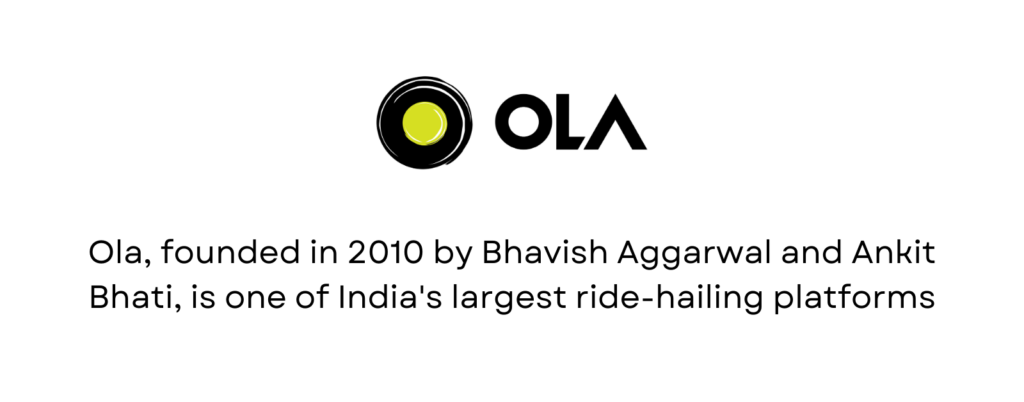India’s urban landscape is undergoing a transformative shift with the rise of Mobility as a Service (MaaS) startups. These companies are redefining how people move within cities by offering innovative and efficient transportation solutions. MaaS integrates various forms of transport services into a single accessible platform, improving the convenience, efficiency, and sustainability of urban mobility.
In a country where traffic congestion and pollution are major challenges, these startups are pioneering efforts to provide smarter, greener, and more convenient alternatives to traditional modes of transport. From ride-hailing and bike-sharing to carpooling and shuttle services, MaaS startups in India are catering to the diverse needs of urban commuters.
This list highlights the top 10 MaaS startups in India, showcasing their innovative solutions and contributions to the urban mobility ecosystem. Each company brings a unique approach to tackling the challenges of urban transportation, making it easier for people to navigate the complexities of city life. Whether it’s reducing travel time, cutting down emissions, or offering cost-effective travel options, these startups are at the forefront of creating a more connected and sustainable urban future.
Table of Contents
1.Ola

Ola, founded in 2010 by Bhavish Aggarwal and Ankit Bhati, is one of India’s largest ride-hailing platforms. The company offers a range of services including peer-to-peer ridesharing, ride-hailing, taxi services, and food delivery. Ola has expanded its services to include electric vehicle (EV) initiatives and plans to make urban mobility more accessible and sustainable. They operate in over 250 cities across India and have also ventured into international markets like Australia, New Zealand, and the UK.
| Detail | Description |
|---|---|
| Founded | 2010 |
| Founders | Bhavish Aggarwal, Ankit Bhati |
| Headquarters | Bangalore, India |
| Key Services | Ride-hailing, EV initiatives, Food delivery |
| Markets | India, Australia, New Zealand, UK |
| App Downloads | Over 100 million |
| Revenue | $360 million (FY 2020) |
| Employees | 7,000+ |
| Website | ola.com |
| Notable Investors | SoftBank, Tencent, Tiger Global |
Also read : Top 10 Mental Health Start-ups in India
2.Rapido

Rapido is India’s largest bike taxi service, launched in 2015 by Aravind Sanka, Pavan Guntupalli, and Rishikesh SR. It aims to address the need for affordable and efficient last-mile connectivity in urban areas. Rapido offers bike taxis that can weave through traffic more effectively than cars. The company operates in over 100 cities in India and has expanded its fleet to include auto-rickshaws. Rapido emphasizes safety, affordability, and quick service for its users.
| Detail | Description |
|---|---|
| Founded | 2015 |
| Founders | Aravind Sanka, Pavan Guntupalli, Rishikesh SR |
| Headquarters | Bangalore, India |
| Key Services | Bike taxis, Auto-rickshaw services |
| Markets | India |
| App Downloads | 10 million+ |
| Revenue | $50 million (FY 2020) |
| Employees | 1,000+ |
| Website | rapido.bike |
| Notable Investors | Westbridge, Nexus Venture Partners |
Also read : Top 10 Health and Wellness Startups in India
3.Bounce

Bounce, founded in 2014 by Vivekananda Hallekere, Anil G, and Varun Agni, offers dockless scooter sharing in several Indian cities. The company provides electric scooters that can be rented for short distances, making urban commuting more convenient. Bounce aims to reduce traffic congestion and pollution by promoting shared mobility solutions. Users can pick up and drop off scooters at any location within the operational area, adding flexibility to their commutes.
| Detail | Description |
|---|---|
| Founded | 2014 |
| Founders | Vivekananda Hallekere, Anil G, Varun Agni |
| Headquarters | Bangalore, India |
| Key Services | Dockless scooter sharing |
| Markets | India |
| App Downloads | 5 million+ |
| Revenue | $30 million (FY 2020) |
| Employees | 500+ |
| Website | bounceshare.com |
| Notable Investors | Sequoia Capital, Accel Partners |
Also read : Top 10 Augmented Reality Start-ups in India
4. Yulu

Yulu, co-founded in 2017 by Amit Gupta, RK Misra, Naveen Dachuri, and Hemant Gupta, focuses on micro-mobility solutions through its fleet of electric bikes and bicycles. Yulu aims to address short-distance commuting needs while reducing the carbon footprint. The bikes are dockless and can be rented via a mobile app. Yulu operates in several major cities and is popular for last-mile connectivity.
| Detail | Description |
|---|---|
| Founded | 2017 |
| Founders | Amit Gupta, RK Misra, Naveen Dachuri, Hemant Gupta |
| Headquarters | Bangalore, India |
| Key Services | Electric bikes, Bicycle sharing |
| Markets | India |
| App Downloads | 1 million+ |
| Revenue | $5 million (FY 2020) |
| Employees | 200+ |
| Website | yulu.bike |
| Notable Investors | Bajaj Auto, Blume Ventures |
Also read : Top 10 Virtual Reality Startups in India
5. Vogo

Vogo, established in 2016 by Anand Ayyadurai, Sanchit Mittal, and Padmanabhan Balakrishnan, offers automated scooter rental services in India. The company provides self-driving scooters for intra-city travel, enabling users to rent and drop off scooters at various docking stations. Vogo aims to provide affordable, convenient, and reliable transportation solutions. They operate in multiple cities and focus on reducing traffic congestion through shared mobility.
| Detail | Description |
|---|---|
| Founded | 2016 |
| Founders | Anand Ayyadurai, Sanchit Mittal, Padmanabhan Balakrishnan |
| Headquarters | Bangalore, India |
| Key Services | Scooter rentals |
| Markets | India |
| App Downloads | 1 million+ |
| Revenue | $10 million (FY 2020) |
| Employees | 300+ |
| Website | vogo.in |
| Notable Investors | Ola, Matrix Partners India |
Also read : Top 10 SaaS Startups for Software in India
6. Drivezy

Drivezy, founded in 2015 by Ashwarya Singh, Abhishek Mahajan, and Amit Sahu, is a self-drive car and bike rental platform. The company aims to make vehicle ownership redundant by providing affordable, accessible, and convenient rental services. Users can rent cars and bikes on an hourly, daily, or weekly basis. Drivezy operates in several Indian cities and offers a wide range of vehicles, including electric scooters.
| Detail | Description |
|---|---|
| Founded | 2015 |
| Founders | Ashwarya Singh, Abhishek Mahajan, Amit Sahu |
| Headquarters | Bangalore, India |
| Key Services | Car rentals, Bike rentals |
| Markets | India |
| App Downloads | 1 million+ |
| Revenue | $20 million (FY 2020) |
| Employees | 400+ |
| Website | drivezy.com |
| Notable Investors | Yamaha, IT-Farm, Axan Ventures |
Also read : Top 10 Robotics Startups in India
7. Quick Ride

Quick Ride, launched in 2014 by KNM Rao, offers carpooling and bike-pooling services in India. The platform connects commuters traveling in the same direction, allowing them to share rides and reduce commuting costs. Quick Ride aims to alleviate traffic congestion and reduce carbon emissions by promoting shared mobility. It is widely used by professionals in major Indian cities and has partnerships with several corporates for employee transportation.
| Detail | Description |
|---|---|
| Founded | 2014 |
| Founders | KNM Rao |
| Headquarters | Bangalore, India |
| Key Services | Carpooling, Bike-pooling |
| Markets | India |
| App Downloads | 2 million+ |
| Revenue | $5 million (FY 2020) |
| Employees | 200+ |
| Website | quickride.in |
| Notable Investors | Sequoia Capital, Naspers |
Also read : Top 10 IoT Startups in India
8. Shuttl

Shuttl, co-founded in 2015 by Amit Singh and Deepanshu Malviya, provides app-based shuttle services for office commuters. The company aims to offer a comfortable, reliable, and affordable alternative to traditional public transport. Shuttl operates in multiple cities and focuses on solving the problem of daily commute for professionals by offering scheduled, shared rides in air-conditioned buses.
| Detail | Description |
|---|---|
| Founded | 2015 |
| Founders | Amit Singh, Deepanshu Malviya |
| Headquarters | Gurgaon, India |
| Key Services | Shuttle services |
| Markets | India |
| App Downloads | 1 million+ |
| Revenue | $15 million (FY 2020) |
| Employees | 500+ |
| Website | shuttl.com |
| Notable Investors | Amazon, Sequoia Capital, Lightspeed India Partners |
Also read : Top 10 Blockchain Startups in India
9. Whizzy

Whizzy, founded in 2017 by Krishnakumar Suresh, focuses on urban last-mile delivery services using electric vehicles. The company provides a platform for on-demand delivery of various items, including food, groceries, and packages. Whizzy aims to provide fast, eco-friendly, and reliable delivery solutions in urban areas, leveraging electric bikes to reduce the environmental impact.
| Detail | Description |
|---|---|
| Founded | 2017 |
| Founders | Krishnakumar Suresh |
| Headquarters | Hyderabad, India |
| Key Services | Last-mile delivery |
| Markets | India |
| App Downloads | 100,000+ |
| Revenue | $2 million (FY 2020) |
| Employees | 100+ |
| Website | whizzy.in |
| Notable Investors | N/A |
10. BluSmart

BluSmart, founded in 2019 by Anmol Singh Jaggi and Puneet Singh Jaggi, is India’s first all-electric ride-hailing platform. The company aims to provide a cleaner, more sustainable alternative to traditional ride-hailing services by using electric vehicles (EVs). BluSmart focuses on reducing urban pollution and offering reliable, zero-emission transportation. The platform also ensures driver-partner welfare with fixed salaries and benefits, promoting a fair and eco-friendly mobility solution.
| Detail | Description |
|---|---|
| Founded | 2019 |
| Founders | Anmol Singh Jaggi, Puneet Singh Jaggi |
| Headquarters | Gurgaon, India |
| Key Services | Electric ride-hailing |
| Markets | India |
| App Downloads | 500,000+ |
| Revenue | $3 million (FY 2020) |
| Employees | 200+ |
| Website | blu-smart.com |
| Notable Investors | BP Ventures, Mayfield Fund, 9Unicorns Accelerator Fund |
Also read : Top 10 AI Startups in India
Also read : Top 10 E-commerce Startups in India
FAQs on Mobility as a Service (MaaS) Startups in India
1. What is Mobility as a Service (MaaS)?
- Answer: Mobility as a Service (MaaS) is a digital platform that integrates various forms of transportation services into a single accessible interface, allowing users to plan, book, and pay for different types of mobility services, including public transit, ride-hailing, bike-sharing, and car rentals, all in one place.
2. How do MaaS startups help reduce traffic congestion?
- Answer: MaaS startups promote shared mobility solutions such as ride-hailing, carpooling, and bike-sharing, which reduce the number of vehicles on the road. By optimizing transportation resources and encouraging the use of public and shared transit options, these startups help alleviate traffic congestion.
3. What are the environmental benefits of using MaaS solutions?
- Answer: MaaS solutions often include electric vehicles, bike-sharing, and carpooling, which contribute to lower carbon emissions and reduced air pollution. By promoting more efficient use of transportation resources and reducing reliance on private car ownership, MaaS solutions support a cleaner and greener urban environment.
4. Are MaaS services affordable?
- Answer: Yes, MaaS services are generally designed to be cost-effective. By offering a range of options such as carpooling, bike-sharing, and public transit integration, MaaS platforms can provide more affordable transportation choices compared to owning and maintaining a personal vehicle.
5. How do I use a MaaS platform?
- Answer: To use a MaaS platform, download the app from the respective startup, create an account, and then you can plan your journey. The platform will provide various transportation options, allowing you to book and pay for your chosen service through the app.
6. Which cities in India have MaaS services available?
- Answer: MaaS services are available in most major Indian cities, including Bangalore, Mumbai, Delhi, Hyderabad, Chennai, and Pune. Each startup has its own operational regions, which you can check on their respective websites or apps.
7. Is it safe to use MaaS services?
- Answer: Yes, MaaS services prioritize safety through various measures such as verified drivers, real-time tracking, customer support, and safety features within their apps. Additionally, bike and scooter sharing services often include safety gear recommendations.
8. Can I use MaaS platforms for long-distance travel?
- Answer: MaaS platforms are primarily designed for urban and short-distance travel. While some services might offer inter-city options, the focus is mainly on providing efficient, convenient, and affordable transportation within cities.
9. What types of vehicles are available on MaaS platforms?
- Answer: MaaS platforms offer a variety of vehicles including cars, bikes, scooters, auto-rickshaws, and sometimes even electric vehicles. The availability of specific types of vehicles depends on the particular startup and the city of operation.
10. How do MaaS startups integrate with public transportation?
- Answer: Many MaaS platforms integrate with public transportation systems by offering information on public transit schedules, routes, and ticketing. Users can plan multi-modal journeys that combine public transit with other forms of shared mobility, providing a seamless travel experience.
Conclusion
The rise of Mobility as a Service (MaaS) startups in India marks a significant shift in the country’s urban transportation landscape. These innovative companies are addressing some of the most pressing challenges in urban mobility, including traffic congestion, pollution, and the need for more efficient and accessible transportation options. By offering a range of services from ride-hailing and bike-sharing to car rentals and shuttle services, MaaS startups are making it easier and more affordable for people to navigate city life.
The top 10 MaaS startups highlighted in this list are leading the charge in creating smarter, greener, and more connected urban environments. Their innovative solutions not only enhance the convenience of daily commuting but also contribute to a more sustainable future by reducing the reliance on private vehicles and promoting shared mobility. As these startups continue to grow and expand, they are set to play a crucial role in shaping the future of urban transportation in India.
Embracing MaaS can transform how cities function, making them more livable and environmentally friendly. By integrating various forms of transportation into a single platform, these startups provide a cohesive and user-friendly experience that can significantly improve the quality of urban life. As more people adopt these services, the collective impact on reducing traffic congestion and emissions will be substantial, paving the way for a cleaner and more efficient urban mobility ecosystem.
Also Read
- Top 10 E-commerce Startups in India
- Top 10 AI Startups in India
- Top 10 Blockchain Startups in India
- Top 10 IoT Startups in India
- Top 10 Robotics Startups in India
- Top 10 SaaS Startups for Software in India
- Top 10 Virtual Reality Startups in India
- Top 10 Augmented Reality Start-ups in India
- Top 10 Health and Wellness Startups in India
- Top 10 Mental Health Start-ups in India
Last Updated on Sunday, June 16, 2024 12:19 pm by International Newswire Team



